Digital dental x ray require very little radiation for capturing an image. Therefore, they are much safer than conventional film dental x-rays. At URBN Dental, your health is our priority, which is why we use digital x-rays on our patients! If you would like to learn more about digital x-rays, give us a call at (281) 638-9388 or book online today! We offer FREE insurance verification.
Radiographs, also known as x-ray images, are an essential diagnostic tool for all types of dental procedures. Taking x-rays is an important adjunct during a comprehensive exam because they help dentists visualize the inner layers of the teeth and bone that are not visible to the naked eye. X-rays play an important role in early and accurate diagnosis for tooth decay and are therefore essential for creating an ideal treatment plan for each patient.

At URBN Dental, we care about you which is why we use low radiation Xrays on all of our patients.
In the past, X-ray images were recorded by directing a beam of x-rays toward the teeth and other oral structures like gums and jawbones. The relative absorbance of these x-rays is then recorded by x-ray sensitive films. This process was not only time-consuming but the results also varied and dependent on the operator’s skill and technique. Advancements in dentistry led to the birth of digital x-rays which are much more efficient and effective in capturing radiographs. Instead of using a radiographic film, digital x-rays use a very small digital x-ray sensor which is placed inside the oral cavity. The image recorded from the digital sensors is then immediately displayed on the screen.
Digital x-rays provide a much better image quality than conventional film, which is why most dentists have chosen to include digital dental x rays as part of their diagnostic tools in the office. Below is a detailed list of the uses of digital dental x rays:
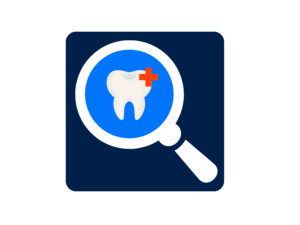
Diagnosing Teeth Cavities
While some teeth cavities, also known as caries, are visible during a clinical exam, most caries lesions develop inside deeper areas of the enamel or in between the teeth which are not visible to the naked eye. In these cases, digital dental x rays are very useful for diagnosing teeth cavities. Tooth decay appear as shadows or dark areas inside the tooth on x-rays, which implies a loss of tooth structure due to loss of minerals from the decay.
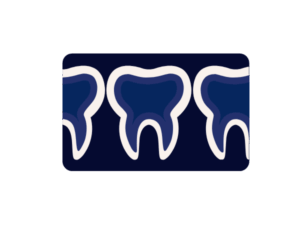
Visualize the Status of Developing Teeth
Digital x-ray images provide the dentist a clear view of the status of the eruption of the permanent teeth. They also provide information regarding which teeth have become impacted and are unable to erupt into normal occlusion. These are useful information to properly refer patients out to orthodontics to correct malocclusion at an early stage.
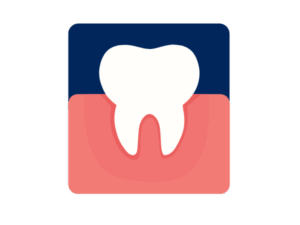
Diagnosing Periodontal Problems
Periodontal infections are characterized by the loss of bone tissue around the teeth. The current level of the bone surrounding the teeth can be easily visualized on a digital x-ray. The bone and teeth appear lighter while the soft tissues tend to appear darker on an x-ray image.
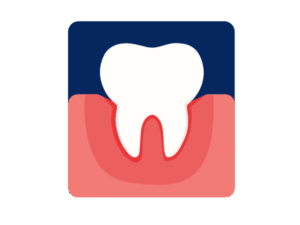
Diagnosing Dental Infections
The extent and severity of infection around the roots of the teeth, known as a periapical infection, can be diagnosed with the help of a digital x-ray. In addition, digital x-ray images are also used during a root canal treatment procedure for evaluating and estimating the length and number of roots of a tooth. Dental X rays are also used for the diagnosis of swelling or cysts around the teeth.
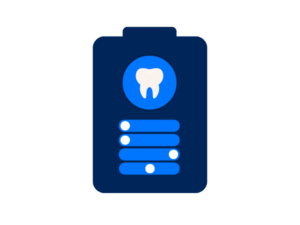
Treatment Planning
Because digital dental x rays are useful in diagnosing cavities, infections and periodontal status, radiographs are essential in creating ideal and accurate treatment plans to address each patient’s dental needs.
We use the most advanced dental technology at URBN Dental.
Dentists use different types of x-ray images for diagnosis and treatment planning:
Digital x-rays provide detailed information regarding the status of your teeth, gums and jawbones. Tooth decay or infections that are not be visible during a clinical exam can be easily detected from a radiograph image. If x-rays are not consistently taken at your regular dental visits, your dentist may not be able to diagnose cavities or periodontal problems at their early stages and therefore you would be at risk for more aggressive treatment once it’s detected at its later stages at which they would appear obvious to the naked eye. Larger decay can become more serious because they could lead to more aggressive and complex treatment, which may lead to more expensive fees and poorer prognosis for the tooth.

The following are some of the prime issues that can come up if you neglect digital x-rays:
As such, you should remain safe and go for regular digital x-rays to ensure that your teeth are healthy and strong. If there are any problems, the dentist will be able to deal with them in their infancy, saving you considerable time, money, and pain.
Digital x-rays are much safer than conventional film radiographs because they require less radiation. However, large amounts of radiation can still be dangerous and therefore digital x-rays are only taken when it is absolutely necessary like at every 6 month recall. Care must be taken while taking x-rays in pregnant women, and usually require a double lead apron to prevent the developing fetus from harmful radiation. Nevertheless, it is still recommended to take at least four bitewing x-rays at our regular dental checkups to ensure proper diagnosis and early detection of cavities and other dental issues.
Digital x-rays are ideal for your patients because they offer less radiation and little to no wait time!
In comparison to the conventional x-rays, digital x-rays carry several advantages:

Lower Radiation Exposure
Digital x-rays require very little radiation for capturing an image. Therefore, they are much safer than the conventional film x-rays.

Improved Image Quality
Digital x-rays provide high-resolution images of the tissues thus providing more diagnostic images for more accurate diagnoses for each tooth.

No waiting!
Conventional x-rays may take up to 10-15 minutes for developing an image. On the other hand, digital x-rays are available to be viewed on the screen as soon as they are taken. Thus, the efficiency of digital x-rays are not only helpful for accurate diagnosis but also reduces chairside time for the patient.

Easy Sharing
Digital x-rays can be easily transferred between mobile and storage devices and can be easily shared with other providers. You don’t need to physically transfer carry the images and can be electronically transferred or stored in memory drives.
Houston | Katy | Montrose | West University Place | Greater Third Ward | Greater East End | North East Houston | Houston Heights | Central Northwest | Fairbanks | Acres Home | East Houston | Southeast Houston | Central Southwest | Fort Bend Houston | Brays Oaks | Meyerland Area | Sharpstown | Alief | Westchase | Memorial | Northwest Houston | Katyland | Whispering Lakes | Pine Lakes | Woodcreek Reserve
Visit us today at URBN Dental as a walk in patient or call us at 281-584-3123 for an appointment at a time of your choosing! Here is to permanent smiles and stronger teeth for all!

First, the dental hygienist examines your mouth to assess the health of your teeth and gums. He or she studies your mouth thoroughly to look for possible signs of gum disease, such as inflamed or swollen gums. This enables your dental hygienist determines if you are a suitable candidate for the dental teeth cleaning procedure given your oral health.
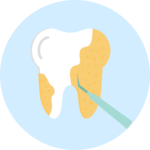
Plaque and tartar, if left unchecked, lead to gum and periodontal diseases. Removing accumulated plaque and tartar is the primary purpose of dental teeth cleaning. The dental hygienist runs a scaler between your teeth and the gum line to remove all traces of plaque and tartar. The duration of this process depends entirely on your oral health and the amount of accumulated plaque and tartar.

Once all the plaque and tartar has been removed, the dental hygienist cleans your teeth with a special toothpaste and an electric toothbrush.
You may be taken aback by the grinding sound of the electric toothbrush, but rest assured the entire process is painless. This step cleans out all remnants of tartar and plaque, leaving your mouth entirely free of impurities.

Professional flossing isn’t the same as the flossing that you do at home. The dental hygienist uses a special flossing tool to reach areas of your mouth that may be difficult to access on your own, ensuring a more thorough clean. This process effectively eliminates plaque, food particles, and bacteria from the deepest recesses of your mouth, reducing the risk of cavities and gum disease. Additionally, it helps identify any areas where your gums may be inflamed or where you may need to improve your flossing technique at home.

Finally, the top-rated Houston dentist applies fluoride paste on a mouthpiece and attaches it to your teeth for one minute. This is followed by painting fluoride varnish on your teeth. The varnish immediately hardens upon contact with your saliva, which creates a kind of barrier against any impurities.
This vital final step in the dentist’s teeth cleaning process protects your teeth from cavities for several months.

The dentist will check your teeth, gums, tongue, and overall oral health, discussing any concerns, recommending treatments, or providing oral hygiene advice. They may also review your X-rays (if taken) to identify any hidden issues. After the exam, the team will provide personalized tips for maintaining your oral health, answer any questions you may have, and help you schedule your next visit—typically in six months—to keep your smile healthy and bright.
No Insurance? No problem.
© Copyright 2025 | Designed & SEO Optimized by The Doctors Marketing
Disclaimer: URBN Dental uses restorative materials such as Admira Fusion® by VOCO, which are free of BPA and Bis-GMA, and are not known to degrade into microplastics under normal oral conditions. While marketed as biocompatible and free of traditional plastic monomers, no dental material is guaranteed to be completely risk-free for all patients. This information is provided for educational purposes and does not constitute medical or regulatory advice.

Discover your perfect smile with a FREE Invisalign assessment.

Receive a complimentary 3D scan ($300 value) when you proceed with implant care.

Speak with our experts about your smile goals from the comfort of your home.
Discuss your smile goals with our experts—choose an in-office visit or a convenient 15-minute phone consult.

Quick, affordable care when you need it most.

Have questions about implants? Get personalized guidance in a brief phone call.